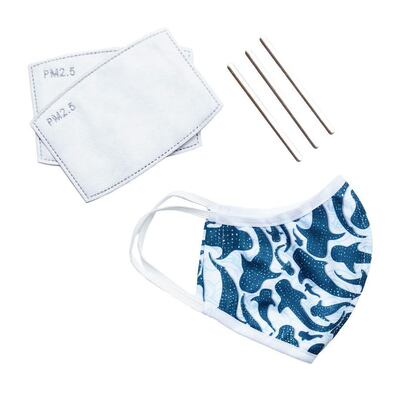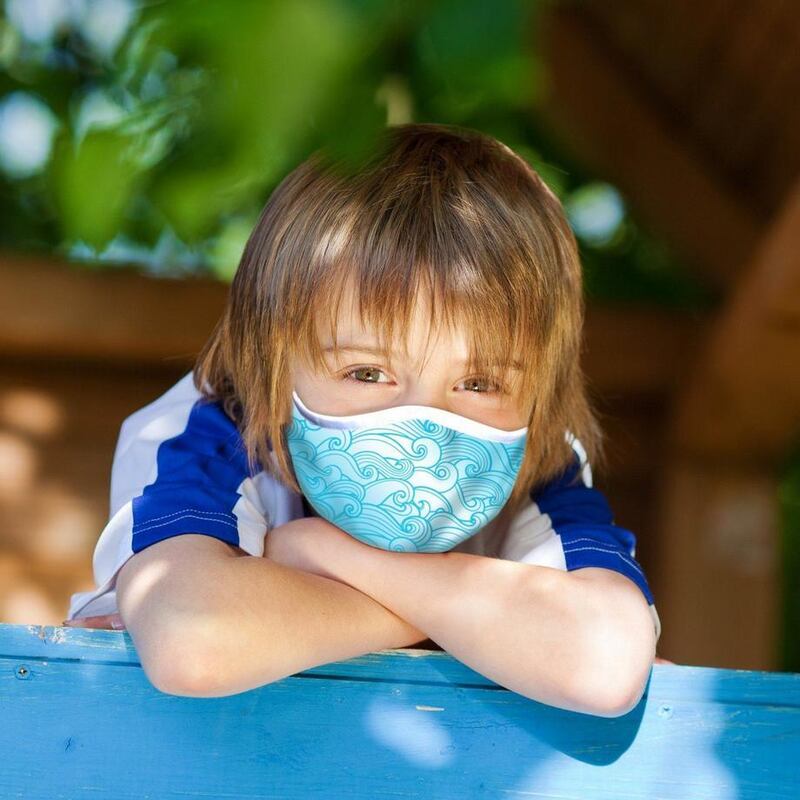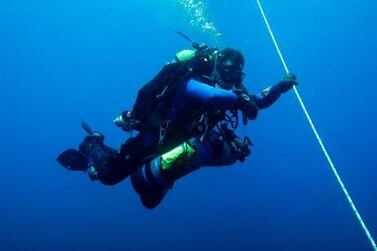In good news for both humans and marine life, a scuba diving association is turning plastic ocean waste into face masks.
The Professional Association of Diving Instructors (Padi) created the eco-friendly equipment to tackle two of the world’s most prominent problems – the pandemic and plastic pollution.
With wearing gloves and face masks now mandatory in many countries, the consumption of single-use plastic has soared. Divers around the world have reported seeing discarded gloves, masks and hand sanitiser bottles beneath the waves.

Padi’s masks are made of plastic retrieved from the ocean. The idea is to simultaneously increase the removal of plastic waste from our waters and help meet consumer demand for face masks to prevent the transmission of Covid-19.
The scuba diving group has partnered with RashR – an eco-friendly water sports clothing company – to create the face coverings, which include balaclava-style face guards and dual-layer reusable masks.
Padi's face guards combine sun protection with a shield against the virus and have ultraviolet protection factor 50+. They cover noses and mouths and can be worn in several ways.
The cloth face masks have elastic ear bands to keep them neatly on wearers’ faces and are made from quick-drying, moisture-wicking recycled polyester.
Both masks are reusable and washable at high temperatures, and feature carbon filters. Each filter functions efficiently for about eight hours each, and replacements are available.
The reusable face masks cost from $20.40 (Dh74). The face guards are priced at $26.75 (Dh98), with carbon filters from $10 (Dh36.75) for a pack of five. Children's masks are also available. Padi makes no profit from selling the masks, which are made in a factory in Latvia.

Purchasing non-surgical masks also leaves more of these resources for the people who need them most.
“By using a non-medical-grade mask, you are increasing the chances the medical-grade surgical and N95 masks will be available for our first responders,” Padi says.
Its face masks are available in various marine-themed prints and have been selling quickly, with some styles temporarily out of stock.
Based on the number of pieces sold, wearers have helped remove and reuse more than 812 kilograms of ocean plastic. Some sold-out styles are available to pre-order on the dive association's website.
Starting with an ocean-friendly mask is a good way to help the ocean continue to breathe as the world battles the pandemic. Wearers still need to properly recycle the masks when finished with them to ensure that retrieved ocean plastic doesn’t simply end up back where it started.







